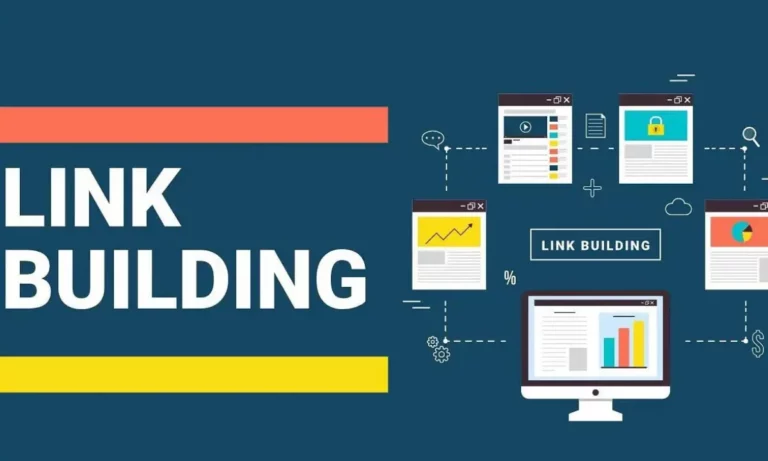Understanding Off-Page SEO
What Is Off-Page SEO?
Off-Page SEO can also be termed as Off-site SEO. The term SEO offsite link to all the activities that are carried out not within your website to enhance its rating and reputation within the search engines. Unlike On-Page SEO that concentrates on the internal parameters of a website, Off-Page SEO relates to external conditions.Why Off-Page SEO Matters
Off-Page SEO significantly contributes to the reputation that search engines will give to your site. It is a proof of the recognition by the digital world as a popular and credible site.Building High-Quality Backlinks
The Power of Backlinks
Backlinks are defined as the links that are pointed to your website from some other website. They are like electronic endorsements that say to other readers and viewers, these are the articles that are worth reading to gain informations. Back links are one of the most important ranking parameters and authoritative back links could highly influence your site’s SEO.The Importance of Natural Link Building
1. Quality over Quantity
Make sure you acquire backlinks from authoritative sites in your niche that are of high quality. A few authoritative links can be more valuable than many low-quality ones.
2. Diversify Anchor Text
You should use different anchor texts in your backlinks. Avoid over-optimization by using natural, contextually relevant anchor texts.
3. Earn Links Through Valuable Content
Instead of actively seeking links, create content that is so valuable and shareable that others naturally link to it.

4. Monitor and Disavow Toxic Links
Regularly monitor your backlink profile. If you discover toxic or spammy links pointing to your site, disavow them through Google Search Console.
Staying Informed and Adapting
Strategies for Acquiring Backlinks

Guest Blogging:
Contribute articles to other well established related websites for the purpose of backlinking.Social Media Engagement:
Post your content on social sites to make people aware of it so that they could help in linking to that content.Influencer Outreach:
Collaborate with influencers who can promote your content to a wider audienceCreating Shareable Content
Crafting high-quality, shareable content is essential for Off-Page SEO success. Informative blog posts, engaging videos, and visually appealing infographics are all great examples of shareable content.
Content Marketing and Off-Page SEO: Boosting Your Online Presence

Promoting Your Content
Once you’ve created valuable content, promote it vigorously. Share it in industry-relevant online communities, email newsletters, and social media channels.
Social Signals and Branding

Leveraging Social Signals
Ranking your website by social media is taken into consideration by search engines. Maintain an active and engaging social media profile to improve your Off-Page SEO.
Building a Strong Brand Online
A recognizable brand fosters trust and encourages more backlinks. Ensure consistency in branding across all digital platforms.
Online Reputation Management
Monitoring Your Online Reputation: It is critical that a business listens to what people are saying regarding their brand.Encouraging Positive Reviews
Motivate your satisfied customers to post on other review site and social media. They help to build good reputation of the business on the internet.Measuring Off-Page SEO Success
Key Metrics to Track
- Backlink Quality and Quantity
- Social Media Engagement
- Online Mentions and Citations
- Organic Search Traffic
- Using SEO Tools
Various SEO tools can help you analyze your Off-Page SEO efforts. Google Analytics, Moz, and SEMrush are popular choices.
FAQs
1. What is the main goal of Off-Page SEO?
The main aim of Off-Page SEO is to optimize outside properties of a website or a blog to rank higher in the search engine and also to maintain better reputation score on the social media platform and other web properties.2. How long does it take to see results from Off-Page SEO efforts?
Off-Page SEO results can take some time and can be gradual, which means that its timeline is quite unpredictable. Your results can vary depending on several parameters including the intensity of the competition in your sector and the thoroughness of your work. In general, it can be months feel some changes and fifty percent of the changes within a year.3. Are all backlinks equally valuable for Off-Page SEO?
Backlinks are considered to be of superior quality if received from sites of recognized authorities and sector relevance, which affects Off-Page SEO.4. What should I do if I receive negative online reviews?
Listening to customer complaints on social media should be handled professionally and the issues in question should be tackled. The best approach here would be to try and seek ways to solve the customer’s problem and prove your organization’s dedication to the customer.5. Can I do Off-Page SEO on my own, or should I hire a professional?
Indeed, some of the Off-Page SEO techniques can be performed independently via the Internet sources and tools. However there is more knowledge and time which you will gain with the professional SEO expert in the process.Conclusion
Off-Page SEO plays a pivotal role for your business if you think about the optimization process of your business in digital platforms for marketing. Thus, it is possible to improve the website’s performance in the online space through the quality backlinks, production and promotion of the shareable content, social signals, and brand reputation management. Do not forget to track the results using various parameters and SEO instruments in order to enhance your Off-Page SEO ongoing process.